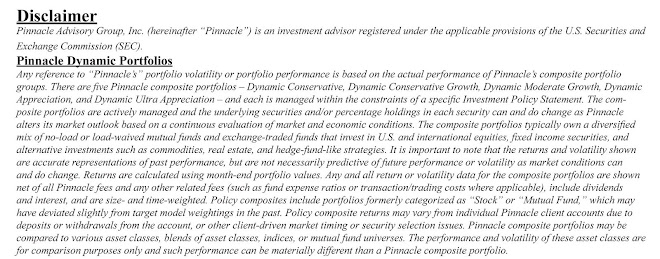I just returned from a weekend in Atlantic City where I was the guest of a fellow Rotarian, David. David would scoff at the notion that he is a “high roller,” but he does have Seven Star status at Harrah’s casino in AC and without knowing the details, you have to spend a lot of time gambling to get to seven stars. David earns boatloads of “comp points” for his gambling activities, and so he treated me and two other Rotarian friends to a weekend of fine dining, golf at Atlantic City CC, unlimited time in the “Seven Star Lounge,” limo rides, $1,000 suites…and…well…you get the idea. For someone like me who manages portfolio risk for a living, and who doesn’t like to gamble, the scene in AC was fascinating and worthy of comment.
To begin with, every gambler there knows that the odds are stacked in favor of the “house.” I was, somewhat amazingly, treated to a lecture on the subject by a professional poker player I met in the Seven Star Lounge informing me that he plays poker because he doesn’t have to beat the house, just the other players at the table. I sat there and received a somewhat stern lecture on risk management from a 35 year-old guy who has made his living playing poker for the past six years! As an aside, this professional player dressed his young daughter up in a “hoodie” and sunglasses when her elementary school had a “dress like your dad at work” day. Our host, David, knows the odds favor the house, but he consistently makes money playing the slots in the casino. He won $9,000 last weekend, including $1,500 while the rest of us were watching the Ravens-Cleveland football game. David “knows” when the machines are about to start paying, or more accurately, he knows when they are likely to keep paying, a skill that is obviously quite useful at a casino. And while I may have been a skeptic before last weekend, I’m now the last person to tell him his system won’t work. He believes in his system and that’s good enough for me.
What about the investment game? Buy and hold investors argue that the odds also favor the house, with players having to pay transaction charges, taxes, and investment advisory fees. They say you should just buy a low cost index and hold for the long-term. In addition, I would add that high frequency trading and proprietary trading desks further stack the odds in favor of the house. Yet active managers, like Pinnacle, persist in playing the game. Why? I believe that in a secular bear market where cash yields are nil investors have little choice. You either develop rules to try and even the odds of winning through actively managing your portfolio or you will fail to meet your financial objectives. That’s why we believe that all investors make mistakes and the successful investors make fewer mistakes than the “house,” or in our case, the consensus. For us the “house” returns are our benchmark returns. If we can’t beat the house then we shouldn’t play. At the moment we have eight years of returns that say we can do it. Thanks for a great weekend, David. I’ll see you at the Flop Poker table!

